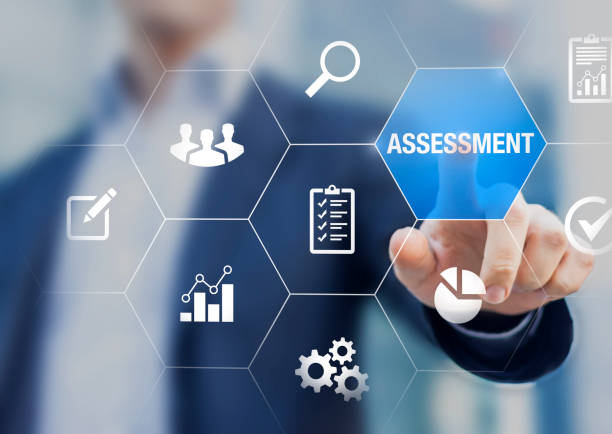Explore the effectiveness and impact of leadership assessment tools

Introduction to Leadership Assessment Tools
Every successful organization is built on the foundation of strong leadership. But how do you measure leadership prowess? Enter Leadership Assessment Tools. These instruments are designed to evaluate an individual’s capability, potential, and style of leadership.
The importance of Leadership Assessment Tools can’t be overstated. Historically, businesses relied on gut feelings or rudimentary evaluations to judge a leader’s effectiveness. As our understanding of leadership has evolved, so has our need for sophisticated tools that offer deeper insights and actionable feedback.
Components of Effective Leadership Assessment Tools
Effective Leadership Assessment Tools are comprehensive, designed to measure a range of leadership competencies.
Measuring Leadership Competencies: A leader’s core competencies, like strategic vision, decision-making skills, and interpersonal effectiveness, are paramount. Effective tools will analyze these facets in-depth.
Assessing Leadership Behavior and Style: Everyone has a unique style of leadership. Some are transactional, others transformational. Understanding this can help refine leadership approaches and improve team dynamics.
Evaluating Leadership Potential: Not every great employee is destined to be a great leader. Recognizing individuals with true leadership potential ensures organizations focus their resources wisely.
Types of Leadership Assessment Tools
There are various tools available in the market, each offering a different perspective.
360-Degree Feedback: This tool provides feedback from peers, subordinates, and supervisors, offering a holistic view of a leader’s performance.
Personality Tests: These aim to identify inherent personality traits which can influence leadership styles.
Behavioral Assessment: Behavioral assessments focus on how leaders act in specific situations, revealing patterns and tendencies.
Skill Assessment Tests: These are designed to measure specific leadership skills, such as conflict resolution or strategic planning.
The Benefits of Using Leadership Assessment Tools
Leveraging these tools can be transformative for businesses.
Enhanced Decision-making: By understanding leadership strengths and weaknesses, better, more informed decisions can be made.
Identification of Leadership Potential: Recognize tomorrow’s leaders today.
Professional Development Opportunities: Targeted training and development programs can be developed based on assessment results.
Improvement in Team Dynamics: Understanding leadership styles can help in crafting high-performing teams.
Challenges Faced When Implementing Leadership Assessment Tools
No tool is perfect, and there are challenges to be mindful of.
Resistance from Employees: Some individuals might be wary of being ‘evaluated’, seeing it as a threat rather than an opportunity.
Limitations in the Tool’s Scope: Not every tool will capture every nuance of leadership.
Biases and Misinterpretation: Biases can skew results, and misinterpretation can lead to incorrect conclusions.
Choosing the Right Leadership Assessment Tool
To pick the right tool, consider the following:
Define Your Objectives: Are you assessing potential, skill, or behavior?
Consider the Tool’s Accuracy and Reliability: Ensure the tool has a proven track record.
Take into Account Ease of Use: A tool is only as good as its usability.
Weigh the Cost-Effectiveness: Balance the cost of the tool against its potential benefits.
Leadership Assessment Tools in Action
Across the globe, companies are reaping the benefits of these tools. Case studies from the likes of Google and Amazon showcase how assessments have shaped their leadership strategies, leading to measurable outcomes like increased productivity and better team cohesion.
Future Trends in Leadership Assessment
The world of leadership assessment is always evolving.
Incorporation of AI in Leadership Assessments: The power of artificial intelligence is being harnessed to provide deeper insights than ever before.
Continuous Assessment and Real-Time Feedback: Leaders are being assessed in real-time, providing instant feedback and opportunities for growth.
Personalized and Adaptive Tools: Assessment tools are becoming more tailored, adapting to the specific needs and challenges of individual leaders.
Conclusion and Final Thoughts
Leadership Assessment Tools are pivotal in sculpting the leaders of tomorrow. As the business landscape shifts and evolves, so will the tools we use, ensuring that leadership remains at the heart of every successful organization.

FAQs
- What are Leadership Assessment Tools?
They are instruments designed to measure and evaluate an individual’s leadership capabilities, style, and potential.
- Why are they important?
They offer organizations a deeper understanding of their leaders, aiding in decision-making, succession planning, and professional development.
- Can they predict future leadership success?
While they provide valuable insights, no tool can guarantee future success. However, they significantly improve the chances of identifying and nurturing successful leaders.
- Are they expensive to implement?
Costs vary. Some tools are affordable, while others, especially bespoke solutions, can be pricier.
- How often should leadership assessments be conducted?
Regularly, but the exact frequency depends on organizational goals. Annually or bi-annually is common.
- Can these tools replace traditional methods of evaluating leaders?
They should be seen as complementary. Traditional methods and these tools combined provide the most comprehensive view of leadership effectiveness.
External Links/ Sources:
